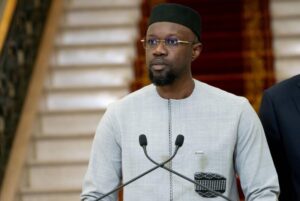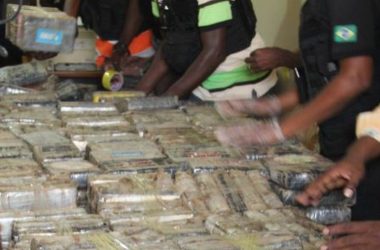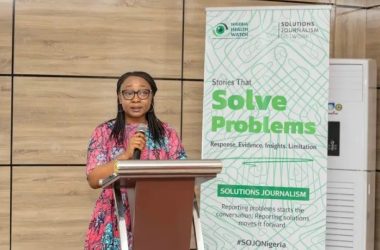Senegal’s Prime Minister Ousmane Sonko on Thursday, September 26 vowed investigations into what he termed “widespread corruption” under the previous administration, accusing it of having fiddled its financial figures.
“The policy of unbridled indebtedness (under former president Macky Sall) has led to the use of resources that is not transparent and that is conducive to widespread corruption,” he told journalists, denouncing the “embezzlement of public funds en masse.”
Sonko and President Bassirou Diomaye Faye swept to power in March on a pledge of radical change in the West African nation. The pair ran on a ticket of social justice, sovereignty and leftist pan-Africanism – raising hopes in the country battling a high cost of living and widespread unemployment.
After being sworn in in April, Faye requested that Sonko conduct a thorough review of the country’s financial situation, with the stock-take’s conclusions shared on Thursday. “We had no idea that things were so catastrophic,” Sonko said, accusing the former authorities of having lied and falsified figures, particularly with international partners.
“The Macky Sall administration lied to the people, lied to its partners, fiddled with the figures to give an economic and financial picture that had nothing to do with reality,” Sonko said.
“All those who played their part … will have to explain to the Senegalese people why and how they were able to plunge the country into this situation,” he added. Besides former president Sall, Sonko pointed the finger at ex-prime minister Amadou Ba and two former finance ministers.
Also speaking at the press conference, Justice Minister Ousmane Diagne said the actions appeared to be “criminal in nature, which the competent judicial authorities will have to determine by means of investigations that they deem appropriate”.
‘Challenging’ economic prospects
Taking place weeks before snap parliamentary elections scheduled for November 17, Thursday’s press conference was the first held by the new government.
Faye in mid-September dissolved the opposition-dominated national assembly and called fresh legislative elections, banking on the move to implement his policy agenda. The International Monetary Fund (IMF) warned in September that Senegal’s economic prospects remained “challenging for the remainder of the year.”

Following a visit to the country by its staff, the fund said it expected the country’s budgetary situation “to deteriorate amid lower revenue collections and increased expenditure on energy subsidies and interest payments”.
To lower public debt the IMF urged Sonko’s government to implement measures “including streamlining tax exemptions and phasing out untargeted and costly energy subsidies”.
Senegal’s national statistics agency in September reported an unemployment rate of 21.6 percent in the second quarter, up three percent on the same period in 2023. Meanwhile scores of Senegalese continue to risk their lives leaving the country in search of a brighter future in Europe, with dozens dying every year on the perilous Atlantic crossing.
The government has said it will launch a national transformation agenda in early October, aimed at bringing about “a lasting transformation of the Senegalese economy and build a sovereign, fair and prosperous Senegal.”
Faye and Sonko have repeatedly said they will seek accountability from the previous administration, with a number of former officials having been prevented from leaving the country.
Speaking at Thursday’s press conference, economy minister Aboudrahmane Sarr said the budget deficit which was put at an average of 5.5% of GDP over the period 2019 to 2023 had in reality been 10.4%. Public debt had been announced at 65.9% of GDP, when in fact it had been 76.3%, he added.
Sonko and Sarr said they planned to broaden the tax base, cut waste in government spending, abolish energy subsidies and attempt to formalize Senegal’s largely informal economy.
Le Monde with AFP





Cutting fuel subsidies will be the crucial part of any reform agenda Sarr and Sonko might bring to the table. The easiest part will be for members of the current regime, elected and selected, not to be found wanting for what they accuse the formate government of.